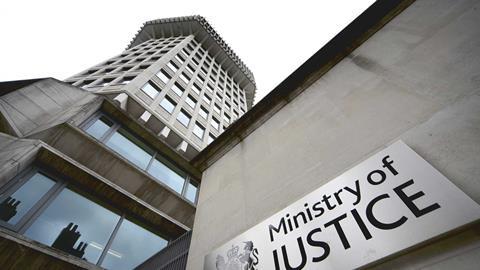Why a Vigil for Justice?
The justice system is in crisis. Access to justice for many is being denied.
We are seeing the effects of the Legal Aid, Sentencing and Punishment of Offenders (LASPO) Act. It removed more than £350 million from the legal aid budget and took out of scope: private family, employment, benefit, immigration, clinical negligence and some housing. Debt (for mortgage cases only), discrimination and education cases can only be accessed via the gateway. We know from the recent statistics that the government received no tenders for discrimination work. Legal help cases fell from 575,000 in 2012-13 to just 145,000 in 2016-17. They are continuing to fall.
The total number of disabled people granted legal aid in welfare cases has plummeted from 29,801 in 2011-12 to just 308 in 2016-17; a 99% decline since 2011. The cases are often complex and involve poor decision making.
Universal credit was introduced in 2013. It has inbuilt delay: originally a six week (at least) wait period and paid in arrears. Housing costs are included so delays and sanctions have meant that more people have fallen into arrears. The figures from the Trussell Trust show a 241% increase in emergency food bank use that since universal credit was introduced. In 2012-13 the trust gave out 346,992 three-day emergency food supplies, rising to 1,182,954 in 2016-17.
The case of Tony Rice (reported widely in the media) became known as a 'real Daniel Blake', when he was refused disability benefits and forced onto universal credit when he was found fit for work. He couldn’t use a computer and didn’t know why he was being sanctioned. He was left to live on just £26 per week for 212 days. There was no legal aid to help him with his benefit issues. He ended up in court with rent arrears of £10,000 when he was unable to pay his rent. Housing advice is now available only when someone is facing eviction. This leaves people in crisis. And when almost a third of legal aid areas in England and Wales now have one or no housing provider. Housing legal aid is now a postcode lottery.
But it’s important that we see the bigger picture in terms of the huge cuts and the impact on access to justice: 220 courts have closed in England and Wales since 2010 and over 5,000 court staff have been cut.
The bestseller the Secret Barrister has exposed what we have known for some time - the criminal justice system is broken. There is no area that is not broken. The CPS, in the recent scandal of non-disclosure over crucial information for the defence, has tried to limit the issue to rape cases, when everyone knows it’s a feature of cases across the board. The director of public prosecutions has claimed that no one was in prison due to non-disclosure, a view she would be hard pressed to find any support for. Last year the Criminal Cases Review Commission referred only 0.77% of cases to the Court of Appeal (and only one murder case), and compensation for quashed convictions has dropped to zero.
Prisons full to bursting are becoming very dangerous places, where rehabilitation is woefully neglected. Probation following privatisation has created massive problems, all of which were predicted by NAPO.
The cuts have gone too far. The Law Centres Network has permission to judicially review the new housing duty scheme contracts, the Law Society has a judicial review on criminal fees and Criminal Bar Association members have voluntarily declined legal aid work in the Crown court due to yet further slashing of fees.
We are saying enough is enough. It’s time to act. We are having a vigil to bring together those who feel the crisis in justice. A crisis in justice is injustice.
Come and join us at the so-called Ministry of Justice, 102 Petty France, Westminster, to stop the rot.
Join us at a Vigil for Justice outside the Ministry of Justice from 7-8pm on Wednesday 18 April.




























1 Reader's comment